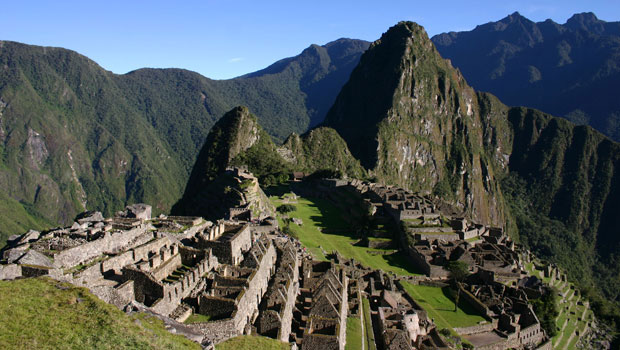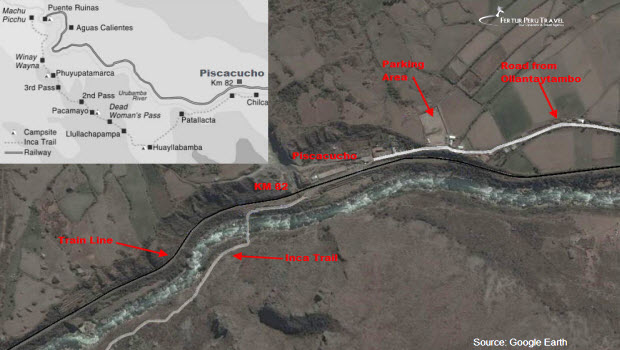Greenpeace demonstration at Machu Picchu ahead of COP20
Greenpeace activists sneaked giant banners into Machu Picchu on the eve of today’s UN Climate Summit (COP20) in Lima and unfurled a message urging world leaders to quickly phase out biofuels and adopt a new course toward 100% renewable energy by 2050.
Three of the seven activists — from Argentina, Brazil, Chile, Spain, Austria and Germany — were reportedly detained briefly by Machu Picchu park guards.
“Machu Picchu is a place renowned for the power of the sun in our past, and for its use that we depend on for our future,” said Martin Kaiser, Head of Delegation Greenpeace Climate Policy, in a statement posted on the organization’s Argentine site.
“The recent agreement between the U.S. and China is a turning point that should stimulate global commitment to the goal of 100% renewable energy for everyone,” he continued. “At COP20, we call for major emitting countries to set ambitious commitments for 2025. The whole world is watching and now is the time to act.”
Last month, U.S. President Barack Obama and President Xi Jinping of China, agreed to a deal in Chinese emissions of carbon dioxide would peak by around 2030, while the U.S. would cut emissions by more than a quarter between 2005 and 2025.
Delegates from 195 nations started meeting today in Lima for COP20, the 20th climate change conference and the last ministerial meeting before a new global deal is due for review and signage in Paris next year.
The climate activists at Machu Picchu had a specific message about how the world should scale down greenhouse gas emissions.
“The production of biofuels is being pushed by governments of industrialized countries as a quick fix to the problem of emissions of greenhouse gases, but what are generating are more problems than solutions,” said Argentine Greenpeace activist María Eugenia Testa.
The cultivation of biofuel crops such as corn, soybeans, rapeseed or sugar cane for the production of biofuels is not only destroying jungle and rain forests, it also is driving up food costs for the populations of the world that can least afford it, she said.
See our Pinterest page for more …
If you like this post, please remember to share on Facebook, Twitter or Google+

 Podcast: Credit where credit is due in Hiram Bingham’s scientific discovery of Machu Picchu
Podcast: Credit where credit is due in Hiram Bingham’s scientific discovery of Machu Picchu  Peru’s INC says it will limit sale of Machu Picchu tickets when rail service resumes
Peru’s INC says it will limit sale of Machu Picchu tickets when rail service resumes  What Cusco tours could look like in 2025
What Cusco tours could look like in 2025  Our new travel route: Cuzco, Machu Picchu & Lake Titicaca
Our new travel route: Cuzco, Machu Picchu & Lake Titicaca  April 1 reopening of Machu Picchu could be a rough ride
April 1 reopening of Machu Picchu could be a rough ride  Yale and Cusco university sign deal for return of Machu Picchu artifacts
Yale and Cusco university sign deal for return of Machu Picchu artifacts  Hilos y Colores featured on Enlace Nacional
Hilos y Colores featured on Enlace Nacional  Meet the world’s oldest radio show host in Lima, Peru – Guinness World Records
Meet the world’s oldest radio show host in Lima, Peru – Guinness World Records